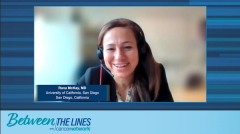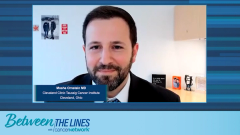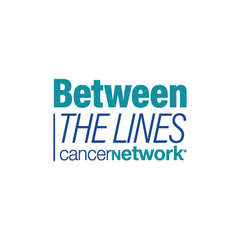
Conclusions: Lenvatinib + Pembrolizumab or Everolimus for Advanced Renal Cell Carcinoma
Brian Rini, MD, summarizes the thoughts of his colleagues on the use of lenvatinib plus pembrolizumab to treat advanced renal cell carcinoma.
Episodes in this series

Brian Rini, MD: The lenvatinib [Lenvima]/pembrolizumab [Keytruda], the paper, the data was important. Kidney cancer was that final trial to report in this space of these IO [immuno-oncology]-based doublets. It was somewhat surprising to me the high levels of efficacy, so if you look at the survival signal, it’s exactly the same as the other trials. All the overall survival, hazard ratios are in the 0.7 range but the absolute numbers for progression-free survival, response rate, and complete response rate were clearly higher for this regimen. And whether that’s because it’s truly superior efficacy-wise or just the vagaries of different trials in different patients, and that you see it’s hard to know but it’s clearly an efficacious regimen. And as we alluded to, it clearly can have its toxicities as well so it’s a bit of a double-edged sword. It is a go-to regimen for me in clinic. I tend to use more IO/TKI [tyrosine kinase inhibitor] [regimens], but again, limited a bit by the toxicity and the dosing of lenvatinib. And there are patients who come into my clinic, and I don’t know what that percentage is. It might be a good 30% to 40% who don’t pass that eyeball test and I’m a little nervous and I’ll go ahead and give him pembrolizumab/axitinib [Inlyta] in that setting. But it’s clearly become an important component of the kidney cancer armamentarium in the frontline. Anything to add to that?
Mehmet Asim Bilen, MD: No. I totally agree, Brian. Another fantastic combination for our patients is very effective but we must balance that via toxicity and durability. Hopefully, we’re going to get more longer term data just to see whether the same thing we see in ipilimumab [Yervoy] and nivolumab [Opdivo] we see for this combination or any other IO/VEGF combination. But overall, I’m positive and encouraged for our patients, and for us, we have a lot of good tools in our toolbox.
Brian Rini, MD: Thanks for joining. It’s been an interesting discussion. I think important data, as you said, sort of the final piece of the puzzle of the frontline doublet and will kick off the next era, but I think an important clinical tool in the management of advanced RCC [renal cell carcinoma]. Thanks everyone for joining this CancerNetwork®Between The Lines.
Transcript edited for clarity.
Newsletter
Stay up to date on recent advances in the multidisciplinary approach to cancer.

















































